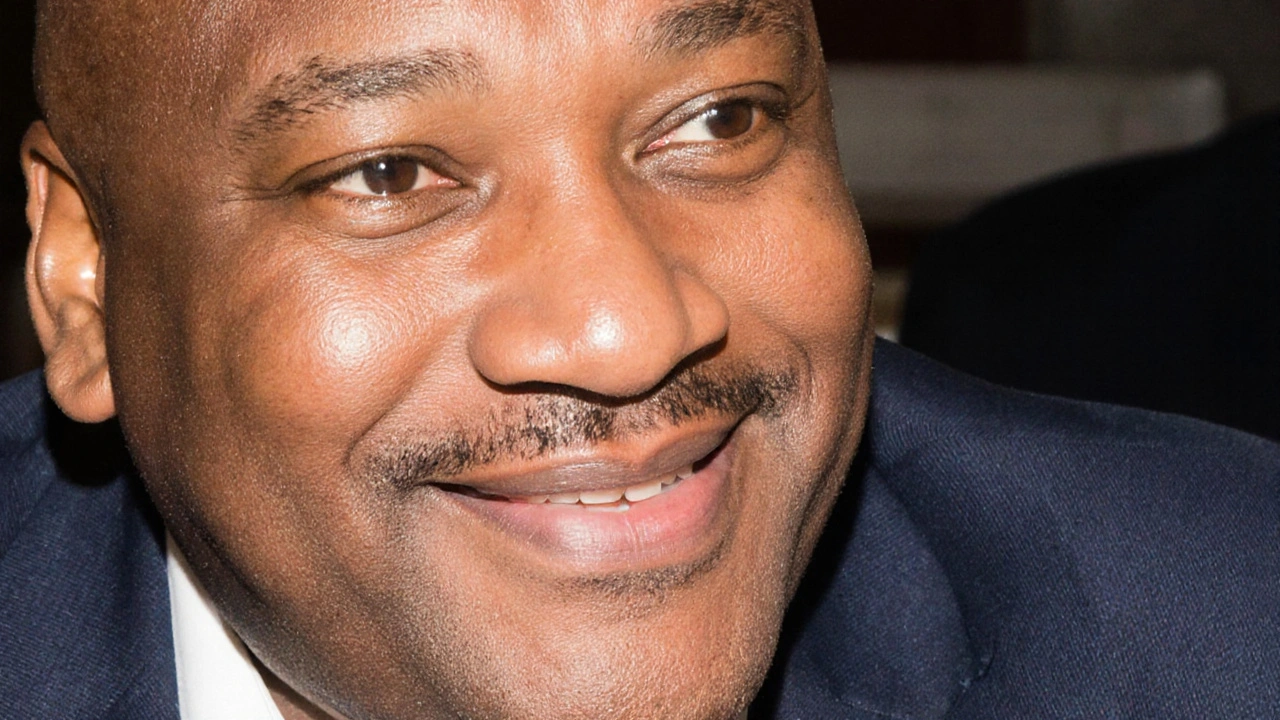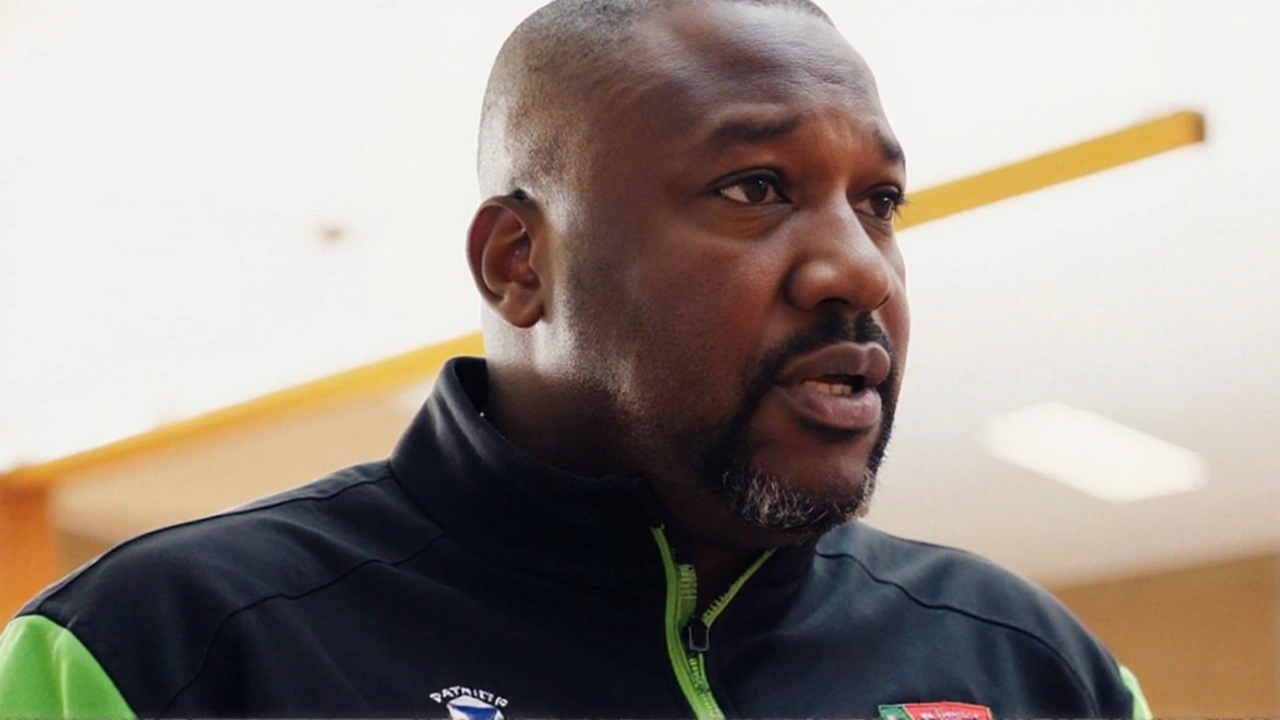When a cabinet minister starts tossing apartheid‑era slurs into his Twitter feed, the backlash is swift and loud. Gayton McKenzie found himself at the centre of a political firestorm after repeatedly using the K‑word in posts that many say dehumanise black South Africans. The uproar prompted ActionSA to take the matter to the South African Human Rights Commission (SAHRC), demanding that the minister be held to account for what they describe as a clear breach of the nation’s equality laws.
What triggered the complaint?
ActionSA’s grievance stems from a series of online messages where McKenzie not only used the notorious racial epithet but also layered his comments with references that harken back to the country’s oppressive past. Critics argue that such language, especially from a public official, goes beyond personal offence—it undermines the constitutional promise of non‑racialism that underpins modern South Africa.
When confronted, McKenzie tried to deflect the criticism by pointing out his own black identity, suggesting that he could not be racist. The defence quickly fell apart as activists and fellow politicians reminded everyone that racism is not a matter of colour but of the content and impact of speech. Under mounting pressure, McKenzie issued an apology, calling his own remarks "insensitive, stupid, and hurtful," but the apology did little to quell the outrage.
The SAHRC confirmed that it has opened an investigation based on ActionSA’s filing. In a preliminary statement the commission made a prima facie finding that McKenzie’s posts likely violate the Promotion of Equality and Prevention of Unfair Discrimination Act (commonly known as the Equality Act). If the final judgment aligns with this initial assessment, the minister could face formal sanctions and possibly a case before the Equality Court.

Political fallout and legal options
Across the political spectrum, parties have seized on the controversy to call for McKenzie’s removal. The Democratic Alliance, the Economic Freedom Fighters, African Transformation Movement, and ActionSA itself have all issued statements demanding that the President act swiftly.
- DA leader John Steenhuisen warned that such language "has no place in South Africa" and stressed the heightened responsibility of leaders to choose their words carefully.
- EFF spokespersons described the remarks as an "offensive reminder of apartheid" and urged the President to dismiss the minister immediately.
- ActionSA reiterated that non‑racialism is a founding principle of the party and that any cabinet member who flouts this value should be held accountable.
Beyond the SAHRC route, ActionSA has made it clear that it is prepared to take the matter to the Equality Court under Section 20 of the Equality Act if the commission’s process stalls or fails to deliver a satisfactory outcome. The party’s legal team says the next steps could involve seeking an interdict to prevent further racist statements and demanding a declaration that the minister’s conduct breaches the Constitution.
The controversy is not limited to McKenzie. ActionSA has also lodged a complaint against Minister Dean Macpherson, accusing him of weaponising racist slurs like "amaphara" and "hobos" against the party’s supporters. Both complaints underscore a growing concern that high‑ranking officials are using inflammatory language as a political tool, a practice that the SAHRC has pledged to scrutinise closely.
For ActionSA, the issue is as much about principle as it is about politics. The party argues that tolerating such behaviour erodes the fragile social contract that keeps South Africa moving forward after decades of institutionalised hate. By pushing the complaints through the proper constitutional channels, ActionSA hopes to set a precedent that no cabinet minister—regardless of their background—can sidestep accountability when they cross the line into hate speech.
The President now faces a decision that could test the resolve of the country’s anti‑racism framework. If he acts decisively, it may signal that the promise of a non‑racial democracy still carries weight. If he hesitates, critics warn that the message to the public—and to future office‑holders—could be that the old rhetoric still finds a safe haven in the corridors of power.


PARVINDER DHILLON
September 27, 2025 AT 04:34Seeing hateful language from a public official is deeply troubling 😔. It reminds us how fragile the progress we fought for can be. We need to keep calling out these incidents so that accountability becomes the norm. The SAHRC process is an important tool, and the public must stay engaged. Hope that this leads to real change and not just a headline.
Nilanjan Banerjee
October 9, 2025 AT 08:14The very utterance of such an archaic slur by a member of the cabinet is nothing short of an affront to the dignity of the nation. One would have expected a minister, sworn to uphold the Constitution, to exhibit at least a modicum of decorum. Instead, we are presented with a spectacle that drags the shadows of the past into the present. It is a stark reminder that the battle for true non‑racialism is far from won. The onus now rests on the leadership to demonstrate that rhetoric does not trump ethics.
sri surahno
October 21, 2025 AT 11:54Clearly, this is not an isolated incident but part of a larger orchestrated attempt to distract the populace from deeper systemic issues. Those in power often employ such provocations to sow division, ensuring that the true agenda remains concealed. It is imperative that we remain vigilant and demand transparency at every turn. The Equality Act exists for a reason, and any undermining of it serves only the interests of those pulling the strings behind the curtain. Our vigilance is the only safeguard against such insidious manipulation.
Varun Kumar
November 2, 2025 AT 14:34Words matter, and those words were unacceptable. The minister's attempt at deflection only highlighted the severity of the issue. Immediate corrective action is essential.
Madhu Murthi
November 14, 2025 AT 18:14It's astonishing how quickly some people resort to extremist language when faced with criticism 😡. This behavior only fuels the very division that threatens national unity. We must hold our leaders to higher standards and demand accountability, not excuses. The SAHRC's involvement is a step in the right direction, but the political will must follow. If we allow such rhetoric to go unchecked, we erode the foundations of our democracy.
Amrinder Kahlon
November 26, 2025 AT 21:54Wow, what a surprise.
Abhay patil
December 9, 2025 AT 01:34We need to stand together and demand that every official respects the values of non‑racialism and dignity. This is not just about one person, but about the future of our society. Let’s keep the pressure on until tangible action is taken.
Amber Brewer
December 21, 2025 AT 05:14The South African Human Rights Commission (SAHRC) has a clear mandate to investigate breaches of the Equality Act, which explicitly prohibits hate speech and discriminatory language. When a complaint is lodged, the commission first conducts a preliminary assessment to determine if there is a prima facie case. If the assessment finds that the allegations are credible, the SAHRC then initiates a formal investigation, gathering evidence, interviewing witnesses, and reviewing the offending statements in context.
During this phase, the commission may issue a formal notice to the alleged offender, outlining the allegations and requesting a response. The respondent is typically afforded a set period to provide a written reply, which can include an apology, justification, or any mitigating factors. In the case of a public official, the response is often scrutinized by both the media and opposition parties, adding a layer of public pressure.
If the SAHRC concludes that the evidence supports a violation of the Equality Act, it can recommend remedial actions. These can range from a public apology and mandated training on non‑racialism to more severe sanctions such as an interdict prohibiting further discriminatory statements. The commission may also refer the matter to the Equality Court for adjudication, where the court can impose fines, order compensation to affected parties, or even recommend removal from public office if the conduct is deemed particularly egregious.
It is worth noting that the SAHRC’s findings are not merely symbolic; they have real legal weight. Non‑compliance with an SAHRC order can lead to contempt of court proceedings, which carry their own penalties. Moreover, the political fallout from a confirmed breach can be significant, often prompting calls from civil society, opposition parties, and even the President for disciplinary action against the minister involved.
In practice, the timeline for these processes can vary. Preliminary assessments may occur within weeks, while full investigations can take several months, especially if the case involves extensive documentation and multiple witnesses. The involvement of ActionSA, a party that has explicitly stated its readiness to pursue an interdict, underscores the seriousness with which they view this breach. Their willingness to take the matter to the Equality Court reflects a broader strategy to set a legal precedent that no public servant is above the law when it comes to hate speech.
Kim Coulter
January 2, 2026 AT 08:54From a nationalist perspective, the very notion of imposing external punitive measures on a native son undermines the sovereign dignity of our nation. One must ask whether the legal framework, designed in a post‑colonial context, truly reflects the aspirations of a truly independent South Africa. It is essential to balance the pursuit of unity with respect for the cultural narratives that shape our identity. Legislation must evolve, not be wielded as a blunt instrument to silence dissenting voices, however controversial they may be. The discourse should be rooted in philosophical rigor, not mere populist outrage.
Michelle Toale-Burke
January 14, 2026 AT 12:34It hurts me deeply 😢 to see our leaders resort to language that wounds our collective soul. The pain is real, and the scars linger long after the words are spoken. We deserve better, and I hope the truth prevails.
Amy Paradise
January 26, 2026 AT 16:14Hey everyone, just wanted to point out that the Equality Act offers clear mechanisms for addressing hate speech, including possible reparations and mandatory sensitivity training. If the SAHRC finds a violation, the minister could face both legal and political consequences. Staying informed helps us all hold officials accountable.
Janette Cybulski
February 7, 2026 AT 19:54Let's keep the conversation uplifting and focus on solutions. Encouraging open dialogue and fostering mutual respect can guide us toward a more inclusive future. Together we can turn this setback into a catalyst for positive change.
Mildred Alonzo
February 19, 2026 AT 23:34Can we look at the speficic sections of the act that deal with hate speech its quite clear. Also, the timeline for the investigation is something i think many dont reali ze. This could be a teachable moment for all.